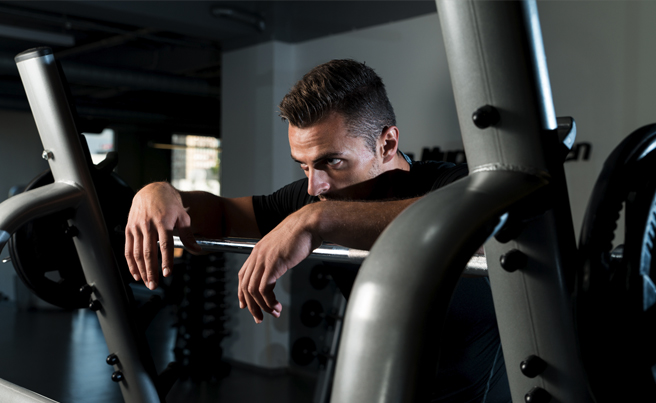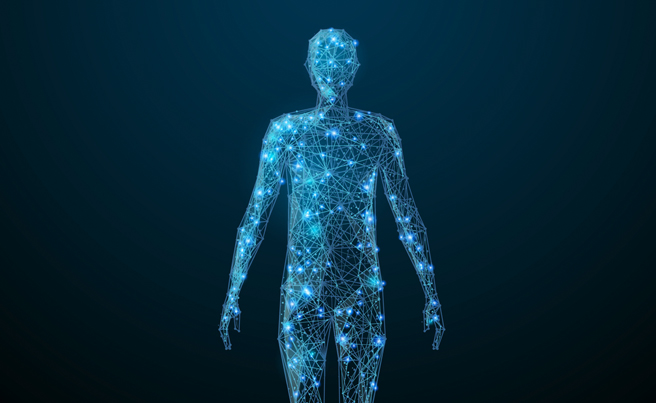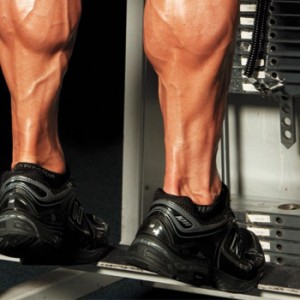Workouts
Useful articles

The ketogenic diet is a natural extension of the low-carb diet trend. It takes the consumption of carbohydrates almost completely out of your diet. Some people find this to be extremely beneficial for weight loss, and the high protein emphasis of the diet makes it excellent for muscle mass and strength building.
Despite how wonderful the keto diet sounds, it does have a few drawbacks and side effects. A large part of your job when planning and executing a keto diet is adjusting that diet to minimize the side effects that you experience.
Dizziness and the Keto Flu
Dizziness is one of several symptoms associated with starting with a new ketogenic diet plan. The whole array of symptoms is collectively known as the “keto flu” because they mimic symptoms you experience with the flu, even though no illness or virus is involved.
The keto flu is not well studied or well understood. There are a few theories as to why it happens, but they all boil down to one thing: you’re changing the fuel source your body runs on. Before you start keto, your body runs on a mixture of protein and carbs. The carbs are an easy to digest, energy-dense source of energy for your body, and as such, they are preferentially used whenever they’re available. The energy is so prevalent that the body tends to store excess energy aside in the form of fat, so it’s ready during lean times.

Since we live in a society where food is readily available, lean times don’t come. Your body stores more and more fat, which leads to obesity and other diseases.
Keto is named for the process “ketogenesis“. Ketogenesis is the body producing ketones by breaking down amino acids, usually fat. Fat is the next best energy source besides carbohydrates, so when the body has no more carbs, it breaks down fat instead.
Keto flu happens when you force your body to rely solely on ketogenesis for its energy supplies. Rather than readily available carb energy, your body has to spend more effort through different biological processes to break down other molecules. This includes fat from your diet but also stored fat in your body. This is why the keto diet is so effective at losing weight.
Shifting your metabolism so dramatically comes with a cost. Adapting to a new fuel source takes time, and the adjustment can be like shifting gears on an engine that hasn’t used other gears in a long time. Another side effect of ketogenesis is a change in kidney function.
During keto, your kidneys go into overdrive. They produce more urine, which means you’re losing moisture in your body. Additionally, you purge some minerals from your body, including sodium, magnesium, and potassium. These electrolytes are important for bodily function, and changing the electrolyte balance in your body can lead to unpleasant sensations, including dizziness.
Preventing the keto flu involves understanding why it happens and adjusting your diet to match it. There are several ways to go about this, which we’ll discuss later.
What Causes Dizziness?
What is it specifically about keto that causes dizziness? More specifically, dizziness during weight lifting? There are two possible scenarios.
If you’re new to keto and you’re starting to lift weights, the adjustment period is still happening and your body is not used to burning fat for energy in the quantities you need. Forcing your body to burn more energy, via lifting weights, requires it to get that energy from somewhere. If it’s not producing enough, it pulls that energy from other sources, mostly internal processes. This can lead to dizziness, or exacerbate dizziness you feel because of the keto flu.

Some people fast before they work out. Fasting before weight lifting forces your body to burn stored fat for energy, but it also may push your body too hard, leading to dizziness. You need to fuel your body properly, which generally means you should avoid fasting before working out whenever possible.
Electrolyte imbalance is another reason you may feel dizzy when lifting weights on keto. Electrolytes are part of the signaling mechanism that tells your muscles how to work, among other things, so they’re very important for working out. If you have too little in the way of electrolytes, your body can suffer in various ways, including dizziness.
Blood pressure can be another concern. Low blood pressure can be caused by a variety of issues. A sudden spike and drop in blood pressure, such as when lifting heavy weights, can reduce the amount of blood reaching your brain and cause brief spikes in dizziness. If you have high blood pressure, however, be careful. Dizziness can be a side effect of blood pressure medications, but it can also be a sign of a stroke. If dizziness is unexplained, see a doctor as quickly as possible.
Dizziness can also occur due to dehydration, which is very common when working out. People often don’t drink enough water in their day to day lives as it is, and working out forces your body to use more water to keep you burning energy, meaning you need to replace even more of it to keep operating.
How to Minimize Dizziness on Keto
There are a lot of different actions you can take to help manage and minimize dizziness while on keto. In part, it depends on identifying why you’re getting dizzy in the first place, but most of these actions can be taken with no ill effects.
Check how consistently it happens. The first thing you want to do is check to see how consistent your dizziness is. Dizziness one time when you’re working out can mean anything from a bit of dehydration to a bad night of sleep to pushing yourself a little too far. If it passes and it doesn’t happen again, it’s nothing to worry about, and you can safely ignore it. However, if it happens consistently when you try to lift weights, you should consider taking action.
Start your keto diet gradually to give your body time to adjust. An abrupt shift from an unfocused diet into a ketogenic diet can be a dramatic change to the body, especially if you weren’t eating very healthy beforehand. Any such major shift will have a lot of side effects, and it can feel downright miserable for the first few weeks. Keto is especially dramatic, as people are not generally designed to avoid sugars in our diets.

Start your diet with gradual shifts and give your body some time to adjust along the way. This can help alleviate all of the side effects of the diet, including most of the unpleasant side effects of keto flu. It will also be easier to keep going with the diet if you adjust to it gradually and suffer less for doing so.
Avoid working out when first starting keto. When you shift to a keto diet, you’re putting your body under a lot of stress. It has to figure out how to start using these other forms of energy, and how to properly break down the food you’re giving it in the quantities you’re giving it. Pushing it even harder, by lifting weights or working out, can push it too far. This holds doubly true if you’re starting a weight lifting program at the same time as the diet, as opposed to doing something you’re used to. People get dizzy just from lifting weights, without any dietary adjustments.
If you’ve been on keto for a while, but you still get dizzy when lifting weights, consider examining your diet to make sure you’re getting all of the nutrients you need. Additionally, make sure you’re using the proper form when lifting weights. Improper form can restrict blood flow and can lead to bursts of dizziness.
Eat before working out. One of the biggest problems people make on keto is assuming that they need to work out after having fasted. The reality is that, while keto does force your body to burn stored fat for energy rather than the sugar you take in, that process isn’t nearly fast enough to give you all of the energy you need for an intense session of working out. Trying to do so will lower your performance, leave you risking getting dizzy or injuring yourself, and can even inhibit muscle growth.

Of course, you still need to track your food and make sure you’re eating a keto-friendly meal or snack before working out. Make sure to talk to your dietician, nutritionist, or personal trainer to help plan the meals you eat before working out.
Increase your B vitamin intake while on keto. B vitamins are a complex series of vitamins your body needs to stay healthy, prevent degenerative diseases, and otherwise perform at its peak. They’re important for, among other things, proper blood utilization throughout the body. One of the key causes of dizziness is a lack of oxygen to the brain, so ensuring proper blood flow, circulation, and oxygen capacity help prevent dizziness.
You can get more B vitamins in your keto diet either by taking a B Complex multivitamin or by eating more foods that are rich in the vitamins you need. Such foods include organ meats, seafood, dairy, eggs, dark leafy greens, nutritional yeast, and spirulina. Feel free to pick and choose, so long as you’re getting enough.
Increase your fat intake. Ramsey Bergeron, keto proponent, ironman athlete, and personal trainer, worries that many keto athletes aren’t eating enough fat.
“If you don’t eat enough fats on a keto diet, you are essentially doing an Atkins diet: high protein, low carb, AND low fat. This can leave you extremely hungry, can actually lower your muscle mass, and is almost impossible to maintain.”
Working healthy fats into your keto diet is hugely important and is a large part of the overall basis of successful ketogenesis. Ensuring that your body has enough dense fuel to work out will help minimize the risk of dizziness as well.
Stay hydrated when working out. Drink more water. Working out means you’re using a lot of water, and a ketogenic diet is already naturally diuretic. You’ll want to drink much more water than you think you need. A good rule of thumb is to try to drink a number of ounces equal to half of your body weight in pounds, each day. So, for example, if you weigh 200 lbs, you want to aim for 100 ounces of water. You can go as high as 200 in this example without risking your health, as well. Drinking too much water can be dangerous, through water intoxication, but you need to drink much more water than you would think in a very short amount of time to have it happen.

Restore your electrolytes as necessary. Taking in more electrolytes might be necessary, but it might not. It’s actually slightly risky to take too much in the way of electrolytes, as excess sodium can lead to blood pressure issues, and excess potassium can damage your kidneys.
Check to see if your sodium is too low, particularly if you use a no-sodium salt replacement in your diet. These salts are often potassium-based, so you may be able to solve the problem by switching back to table salt.
Consider cardio instead of weight lifting temporarily. Weight lifting typically uses glycogens in your muscles as fuel and builds muscle through high weight, low rep exercises. Ketogenesis works against this by encouraging your body to use stored fat as fuel rather than glycogens. If your goal is to lose weight by burning fat, it’s probably a better idea to focus on cardio for a while. Alternating your workouts every few weeks can be a good way to increase their effectiveness as well.
And, above all, if you’re concerned about dizziness, talk to a doctor. You may want to have blood tests done to make sure you don’t have blood pressure, oxygenation, or kidney issues, all of which can occur in extreme circumstances with the keto diet.
Thank! Your message has been sent successfully.











Questions and answers 0